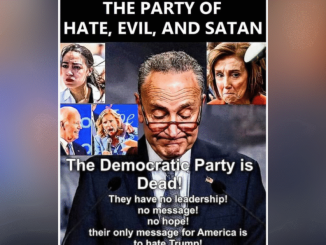
| Published June 28, 2025
Las Vegas, NV — Conservative radio host and political firebrand Wayne Allyn Root has ignited fresh controversy after proclaiming that former President Donald Trump “can NEVER, EVER, EVER ask for Congressional approval to bomb Iran,” citing deep-rooted infiltration of Congress by what he calls “spies and traitors.”
In a blistering editorial published by The Gateway Pundit, Root warned that seeking Congressional authorization would only tip off America’s enemies and compromise national security.
“Trump must never go to Congress. It’s filled with deep state actors who don’t have America’s best interest at heart,” Root wrote. “They would rather leak information and sabotage our efforts than defend this country.”
Although Root offered no hard evidence, his remarks reflect ongoing distrust among many America First conservatives who believe the U.S. government is plagued by internal sabotage.
📺 VIDEO SPOTLIGHT: Did Trump Really Obliterate Iran’s Nuclear Program?
A popular analysis video now circulating online questions the extent of Trump’s claimed military success in Iran. While the former president boasted about “completely destroying” Tehran’s nuclear capabilities, military analysts and former intelligence officials suggest the damage may have been exaggerated. Some satellite imagery and BDA (bomb damage assessment) reports remain classified, further fueling speculation.
“We just don’t know how effective these strikes really were,” said former CIA analyst Karen Roth on air. “Politically, the message is strong. Strategically, it’s murkier.”
🏛️ Legal Framework and Tensions
The U.S. Constitution grants Congress the power to declare war, but under the War Powers Resolution of 1973, the president may launch limited military operations and notify Congress within 48 hours. However, extended military involvement—especially against a sovereign nation like Iran—would typically require Congressional backing.
Despite this, presidents from both parties have used executive authority to launch airstrikes without formal Congressional approval, citing urgent threats or classified intelligence.
 Resulting Effects
Resulting Effects
🔺 Strengthened Trump Base
Wayne Root’s bold statement has further energized Trump’s America First supporters, reinforcing a belief that the former president is the only figure willing to confront both foreign threats and domestic sabotage. Online forums and conservative influencers widely shared the article, framing it as a “truth bomb” about D.C. corruption.
⚖️ Deepened Legal Debate
Root’s rejection of Congressional approval sparked renewed discussion among constitutional scholars about the limits of executive power. Critics argue that undermining the legislative branch’s war authority sets a dangerous precedent, while supporters claim Trump is justified in acting unilaterally to protect national security.
💥 Media Polarization
The article became a flashpoint for partisan media coverage. Pro-Trump outlets hailed Root as a truth-teller, while mainstream networks and liberal pundits dismissed the claims as conspiratorial and legally baseless. This added to the growing media divide over Trump’s foreign policy legacy.
🌍 International Reactions
Foreign policy analysts note that public divisions between the president and Congress may be interpreted by adversaries like Iran and China as signs of internal weakness. Tehran dismissed the claims as “American propaganda,” while others warned of potential escalation if U.S. internal disputes delay military decision-making.
 Bottom Line:
Bottom Line:
Wayne Root’s explosive warning underscores the deep mistrust many Americans—especially within Trump’s base—feel toward the political establishment in Washington. While critics call his claims reckless and unfounded, supporters view them as a necessary call to action in an era of alleged deep state sabotage. Root’s message aligns with Trump’s long-standing view that decisive leadership must rise above bureaucracy, especially when national security is on the line.
As geopolitical tensions escalate and questions about presidential authority intensify, the divide over how America should project power—legally and morally—will likely remain a defining issue heading into 2026 and beyond.





Be the first to comment